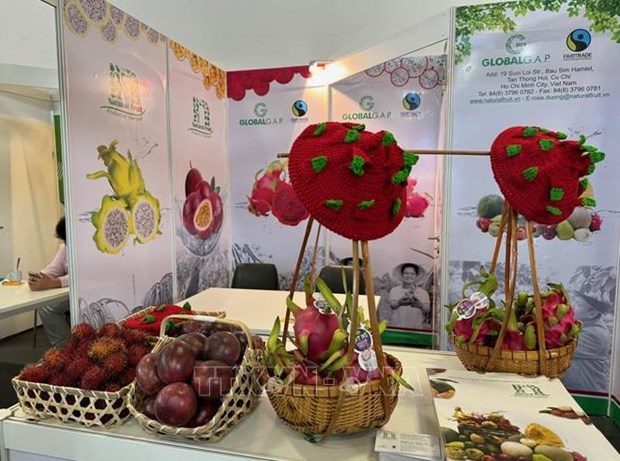Vegetable, fruit exports see large potential in Southeast Asia, Middle East: forum
The Asian markets, especially Southeast Asia and Middle East, still hold vast potential for Vietnamese vegetable and fruit exports, experts said at a forum regarding the goods held in Ho Chi Minh City on March 13.
The Asian markets, especially Southeast Asia and Middle East, still hold vast potential for Vietnamese vegetable and fruit exports, experts said at a forum regarding the goods held in Ho Chi Minh City on March 13.
Le Thi Mai Anh from the Ministry of Industry and Trade’s Asia-Pacific Market Department – the organiser of the forum – elaborated on the point by noting that in the Association of Southeast Asian Nations (ASEAN) region, Vietnam holds a geographical advantage with convenient transport time, minimising risks that could affect the quality of vegetables and fruits. This is also a large and open market, with import duties ranging from 0 to 5%.
Nevertheless, the region presents intense competition due to the similarity in farming product structures and numerous trade barriers. Focusing solely on exporting fresh fruits will pose challenges for Vietnam, she assessed, suggesting export firms concentrate on quality, price, and design to enhance competitiveness and expand market share.
Truong Xuan Trung, head of the Vietnam Trade Office in the UAE, said that despite being a small country with a sparse population, the UAE boasts one of the highest per capita incomes globally. Due to its unique natural conditions, the nation primarily focuses on industrial and service development, while heavily relying on imported food and grains. It also serves as a transshipment point for re-exporting goods to other markets.
He held that Vietnamese vegetable and fruit exporters can leverage this market to access larger consumer areas.
According to him, this is an open market with virtually no trade barriers, but is highly competitive. The expert recommended Vietnamese export enterprises work on understanding the business culture and practices of the Muslim population, as well as negotiating and applying the safest payment terms when dealing with UAE businesses to avoid risks in international trade.
Le Thanh Hoa, Deputy Director of the Ministry of Agriculture and Rural Development’s Department of Quality, Processing and Market Development, stressed that in addition to production capacity, Vietnam also benefits from dozens of free trade agreements, facilitating negotiations for various vegetable and fruit products to enter different markets.
It is necessary to organise production according to good agricultural practices suitable for each type of fruit and vegetable to meet customer requirements and to standardise the planting process to ensure the monitoring of food safety risks from planting, caring, harvesting to processing, said the official.
Supply chains building, mechanisation, and advanced technique application are also important, Hoa noted.
Vietnam’s fruit-vegetable export turnover reached a new record high of 5.6 billion USD last year, an annual rise of 66.7%. The figure is predicted to continue to witness year-on-year two-digit growth this year to hit around 6.5-7 billion USD./.









